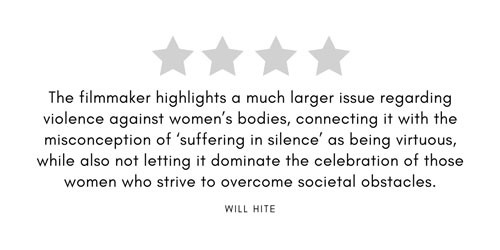
By Will Hite
In India, millions of women living under its patriarchal society are told to stay inside as much as possible and tend to familial duties such as cooking, cleaning, and finding a husband. Otherwise, they are subject to men outside their family and have a chance of ruining their family’s honor. While many women continue to face significant challenges when it comes to their personal freedom, what happens to those few who find the courage to rise up and follow their dreams?
The short observational documentary Can’t Hide Me, directed by Madhuri Mohindar (now screening on the Planet Classroom Network YouTube Channel) follows the struggle of three young indian women Parvati, Malika and Heena who break the rules to pursue their interests in education, the arts, sports, and photographic journalism. The narrative device of talking heads gives these women a platform to express their individual points of view. In addition the audience is able to gauge how ingrained patriarchy is in the fabric of Indian culture. As reflected by the majority of men and a number of older women who appear in the film, people are raised to believe that a woman’s place is in the home predominantly because of the harm that may happen to a woman when she ventures out. Although this seems like an elaborate excuse to keep women domesticated, violence against women in India serves as one of the major themes of the documentary.
Whether they were attempting to leave the nest and achieve their seemingly impossible goals or follow their family’s wishes and marry a husband who can provide for them, the women in the documentary experience both domestic abuse and violence from male strangers. The filmmaker highlights a much larger issue regarding violence against women’s bodies, connecting it with the misconception of ‘suffering in silence’ as being virtuous, while also not letting it dominate the celebration of those women who strive to overcome societal obstacles. In addition, director Madhuri Mohindar interviews those who are more supportive of gender equality such as Sonali Khan, head of the Human Rights Group Breakthrough, who supports the women as they strive for a better education, and Venugopal, Malika’s husband who encourages his wife to practice the male-controlled Indian performance art of Yakshagana. Even though no real structural changes occur during this twenty-five minute documentary, the true shift will hopefully be seen in the course of history. These women have contributed so much to improving society and Can’t Hide Me serves as a testament to that fact.
I would rate Can’t Hide Me 4/5. My only question was that some of the women were referred to as Muslim, a minority in India, while also wearing the bindi as well as engaging in traditionally Hindu practices. This confusion could be resolved if the filmmaker better specified the faiths of the main figures and how they relate to the treatment of women outside both religious and national cultures.
Will Hite is a senior at Connecticut College pursuing a degree in theater and film studies. His area of focus includes playwriting and screenwriting, acting, directing, video editing, and dramaturgy. Will has been an avid member of the student run theater scene at his college, helping organize play readings for Wig and Candle as well as founding a playwriting club called Crooked Curtains Theater.




Recent Comments